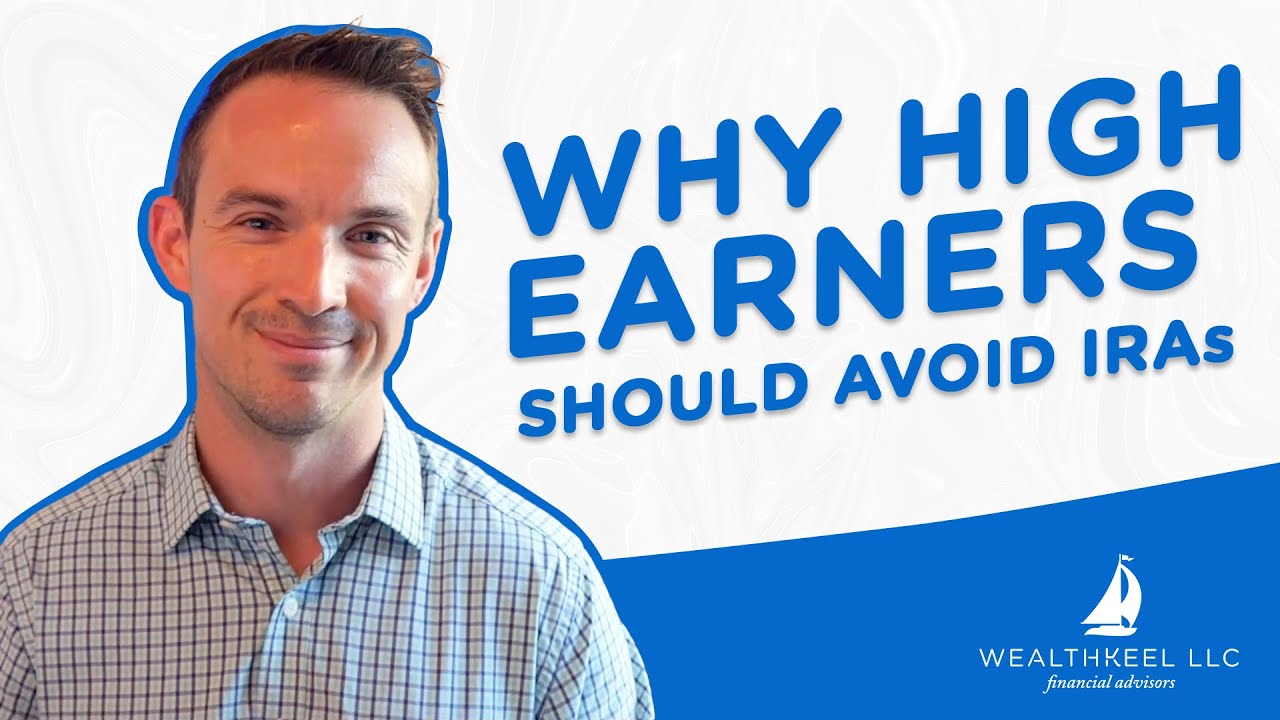Why High-Income Professionals Should Rethink IRAs: A Deep Dive into Simplification, Asset Protection, and Backdoor Roth IRAs
While Individual Retirement Accounts (IRAs) are undoubtedly popular tools for retirement planning, they may not always be the best option for those with higher incomes. This post explores why high-income professionals, including physicians, dentists, and veterinarians, might need to reassess having an IRA as part of their investment strategy. We’ll delve into three main areas – simplification, asset protection, and the nuances of the Backdoor Roth IRA – to provide a comprehensive understanding of why other options might serve you better.
🎥 Prefer video over the blog? We’ve got you covered!
Watch our YouTube video as we dissect this blog post for you 🎥
Simplification in Retirement Planning
When it comes to managing retirement savings, simplicity can save a significant amount of time and headaches. This holds especially true for high-income professionals who often juggle busy schedules and complex financial situations.
Consolidating Retirement Accounts
For many high earners, particularly those in fields like medicine or academia, simplification can mean consolidating multiple retirement accounts. This typically involves rolling over 401(k)s or 403(b)s from one employer to the next. Such a strategy not only helps in keeping track of funds but also in maintaining a streamlined investment portfolio.
Example: The Thrift Savings Plan (TSP)
The Thrift Savings Plan, a favorable option among federal employees, exemplifies a low-cost, straightforward retirement plan that features easy transferability between jobs. Its structure emphasizes ease of use with excellent performance, making it a top choice for those who value simplicity.
Opportunities for High-Income Professionals with 1099 Income
For those who might have 1099 income – perhaps from consulting or other freelance work – a solo 401(k) offers a powerful tool for retirement savings. This type of account allows significant contributions and can coexist with employer-sponsored plans, making it an excellent vehicle for additional retirement savings and further simplifying one’s financial landscape by consolidating into one primary account.
The Critical Role of Asset Protection
Asset protection is a paramount concern for anyone, but it significantly impacts physicians and other high-income professionals, who may be more susceptible to lawsuits due to the nature of their work.
Understanding ERISA’s Role
Plans covered under the Employment Retirement Income Security Act (ERISA), like the 401(k) and 403(b), typically offer robust protection from creditors. They are often seen as almost impenetrable in legal situations, making them highly desirable from an asset protection standpoint.
State-Specific Considerations
Consider California, where the state-specific rules differ markedly for IRAs versus Roth IRAs. While traditional IRAs offer some degree of protection based on essential support, Roth IRAs aren’t protected at all. This stark contrast necessitates a thorough understanding of your state’s legislation and underscores why keeping funds in a 401(k) or 403(b) might be preferable.
Adding Layers of Protection with Umbrella Insurance
Besides choosing the right type of retirement account for asset protection, high-income professionals should consider umbrella insurance. This type of insurance provides an extra layer of security against potential liabilities, thereby enhancing overall financial safety.
Navigating the Complexities of the Backdoor Roth IRA
The Backdoor Roth IRA is a strategy employed by many high earners due to its tax advantages. However, its implementation is not without complications, particularly regarding the Pro-Rata Rule.
Implications of the Pro-Rata Rule
When pre-existing traditional IRAs are in play, converting to a Roth IRA can trigger unintended tax consequences under the Pro-Rata Rule. This rule requires considering all IRA balances when determining the taxable amount of a conversion, which can lead to a significant tax obligation unexpectedly.
Why Solo 401(k)s are Favorable
For high-income earners with 1099 income, using accounts like a solo 401(k) can avoid the complications of the Pro-Rata Rule entirely. This account type doesn’t count in the Pro-Rata calculation, making it an excellent option for those considering or already using the Backdoor Roth strategy.
Preferring 401(k) and 403(b) Plans Over IRAs
With recent litigation focusing on the excessive fees in many retirement plans, there’s been a noteworthy shift towards lower fees and better options in 401(k) and 403(b) plans. This improvement makes these plans even more appealing for high-income professionals.
The Benefits of Modern 401(k) and 403(b) Plans
Today’s plans often feature lower costs, better fund lineups, and increased use of index funds, directly benefiting the plan participants. These enhancements align well with the financial goals of high-income earners who seek efficient, cost-effective ways to grow their retirement savings.
When an IRA Might Still Make Sense
Despite the potential drawbacks, there are scenarios where an IRA could still be appropriate. For individuals without access to employer-sponsored plans or those with particular financial situations, an IRA might play a pivotal role in their overall retirement strategy.
Conclusion
For high-income professionals, assessing the suitability of an IRA is crucial. By considering factors like simplification, asset protection, and the specific mechanisms of the Backdoor Roth IRA, professionals can make informed decisions that align with their financial goals and professional risks. While IRAs have their place, better-suited options like 401(k)s or 403(b)s, along with additional protective measures like umbrella insurance, often provide a more robust foundation for the financial future of high earners. Consulting with a financial advisor who understands the nuances of these considerations is always a wise step to tailor a strategy that best suits individual circumstances and ensures a secure and prosperous retirement.
Looking for a more thorough all-in-one spot for your financial life? Check out our free eBook: A Doctor’s Prescription to Comprehensive Financial Wellness [Yes, it will ask for your email 😉]
